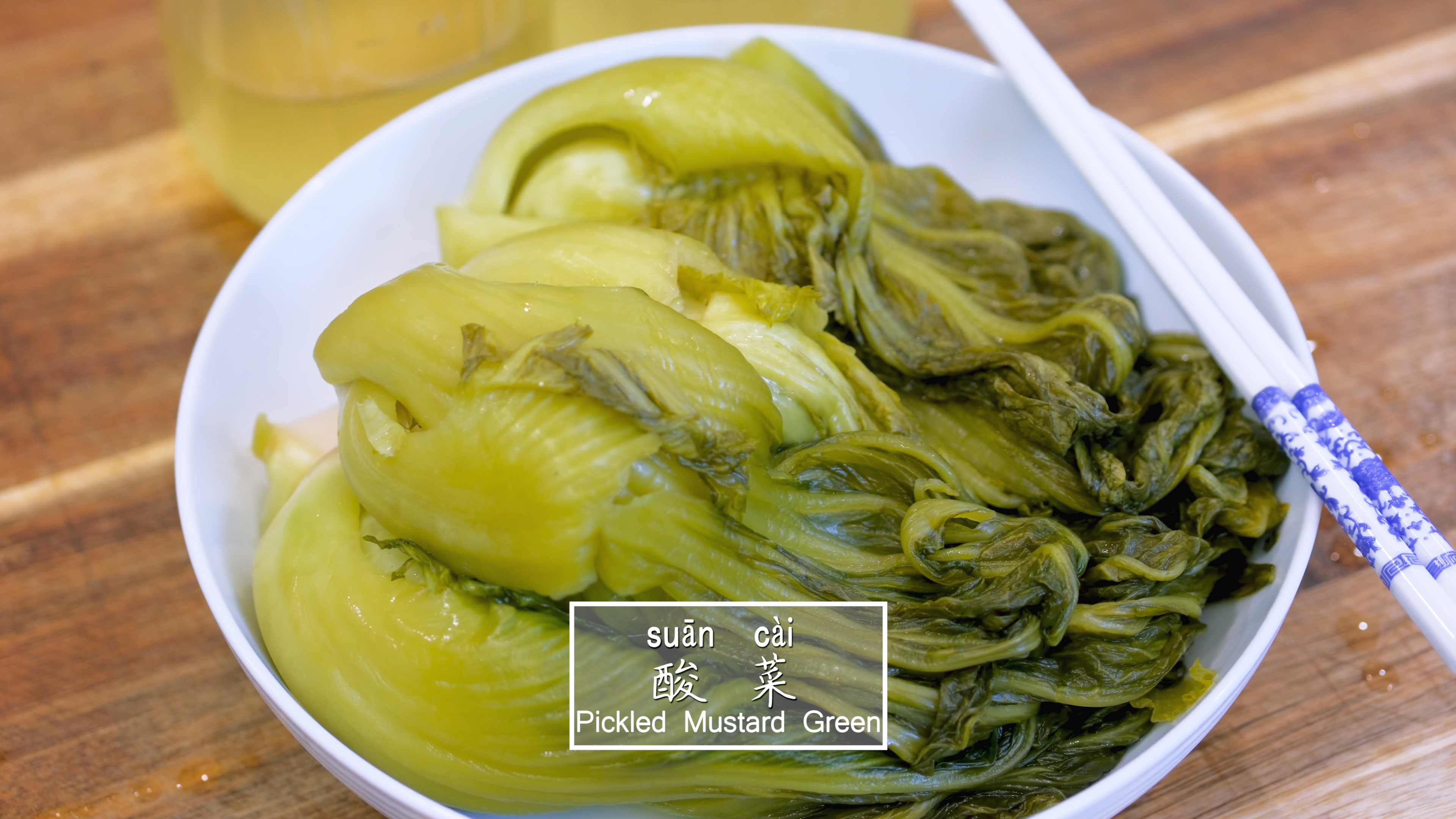Homemade Chinese Pickled Mustard Greens
Rated 4.5 stars by 2 users
Author:
Souped Up Recipes
Pickled mustard green, AKA suancai, is one of the most popular pickles in Chinese cuisine. Almost every Chinese grandmom knows how to make it at home. It is essential in making various Chinese dishes, such asSichuan Suan Cai Yu,Taiwanese Steamed Burger Buns, andChinese Braised Beef with Pickled Mustard Green.
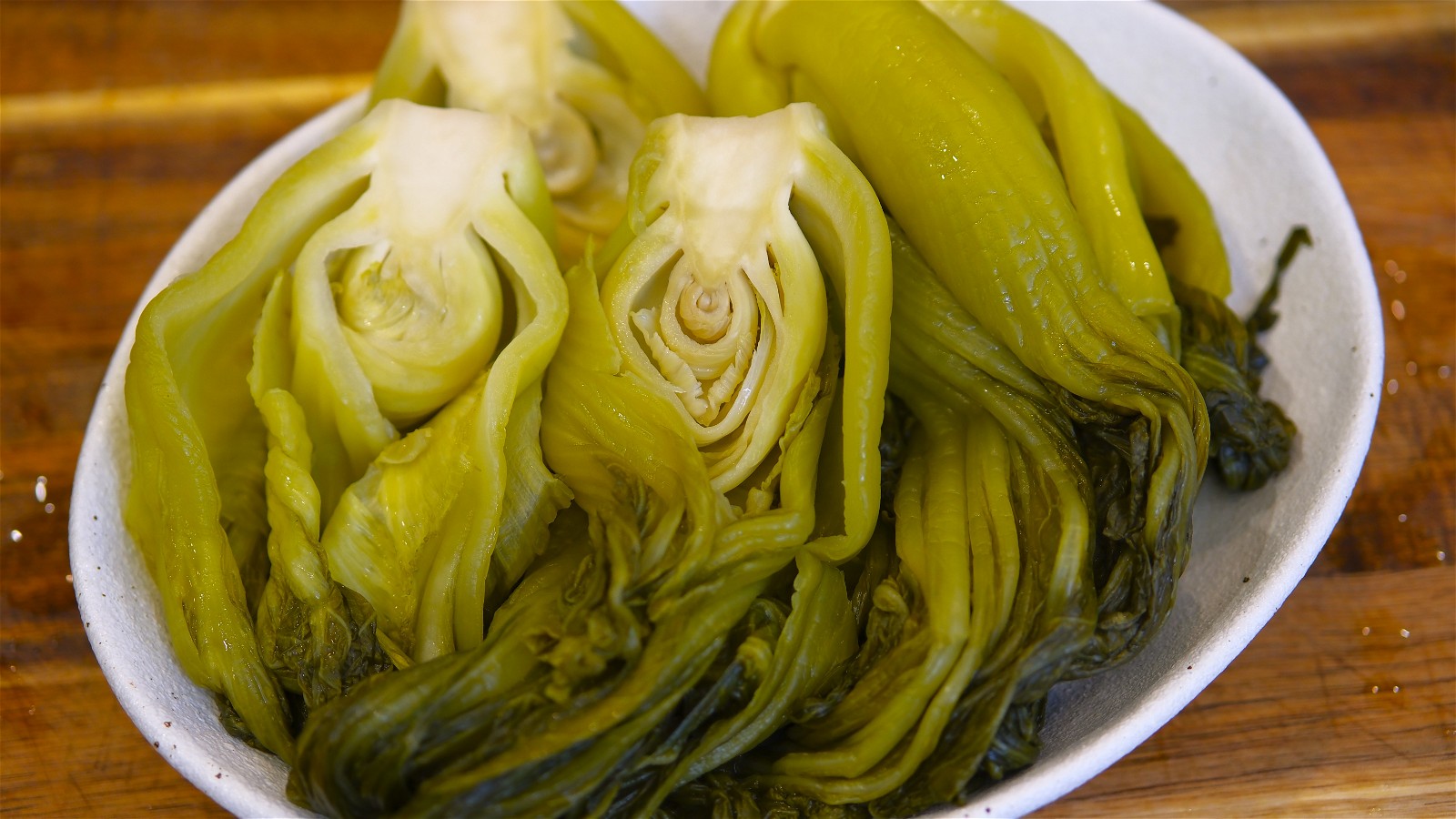
Ingredients
-
907g / 2 lb Chinese mustard green
- 700-800g / 24.7 - 28.2 oz distilled water or boiled but cooled tab water
- 56g / 2 oz coarse sea salt
Directions
- Wash the mustard green thoroughly. Make sure you rinse in between the leaves to remove all the dirt.
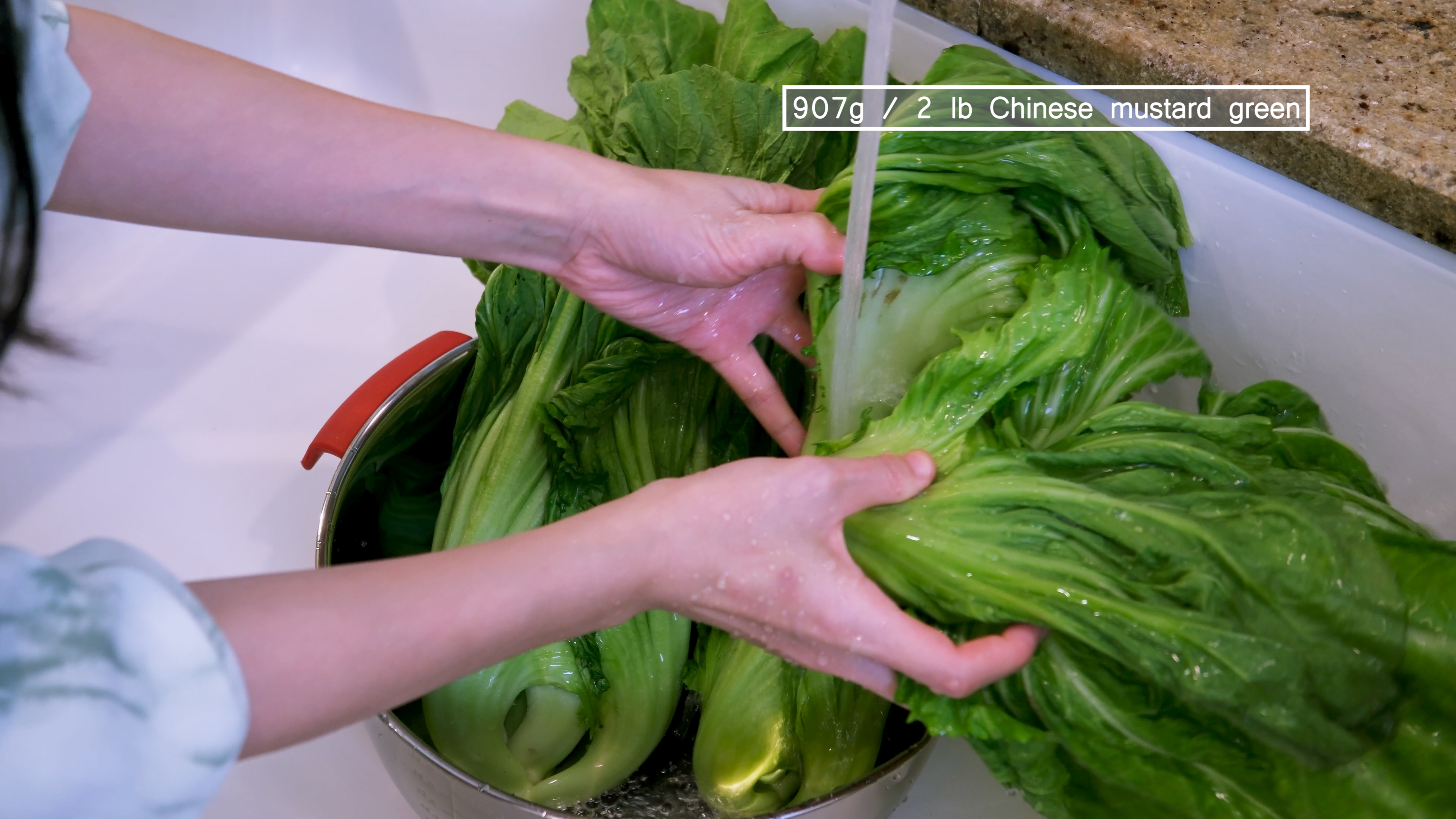
- If you don't have access to Chinese mustard greens, use rapini, AKA Broccoli rabe, as a replacement. It looks different compared to mustard green, but they are both in the family of mustard. Rapini also has a slightly bitter taste and a pungent aroma. I tested it, and it came out with a similar taste and texture to the real Chinese suancai.
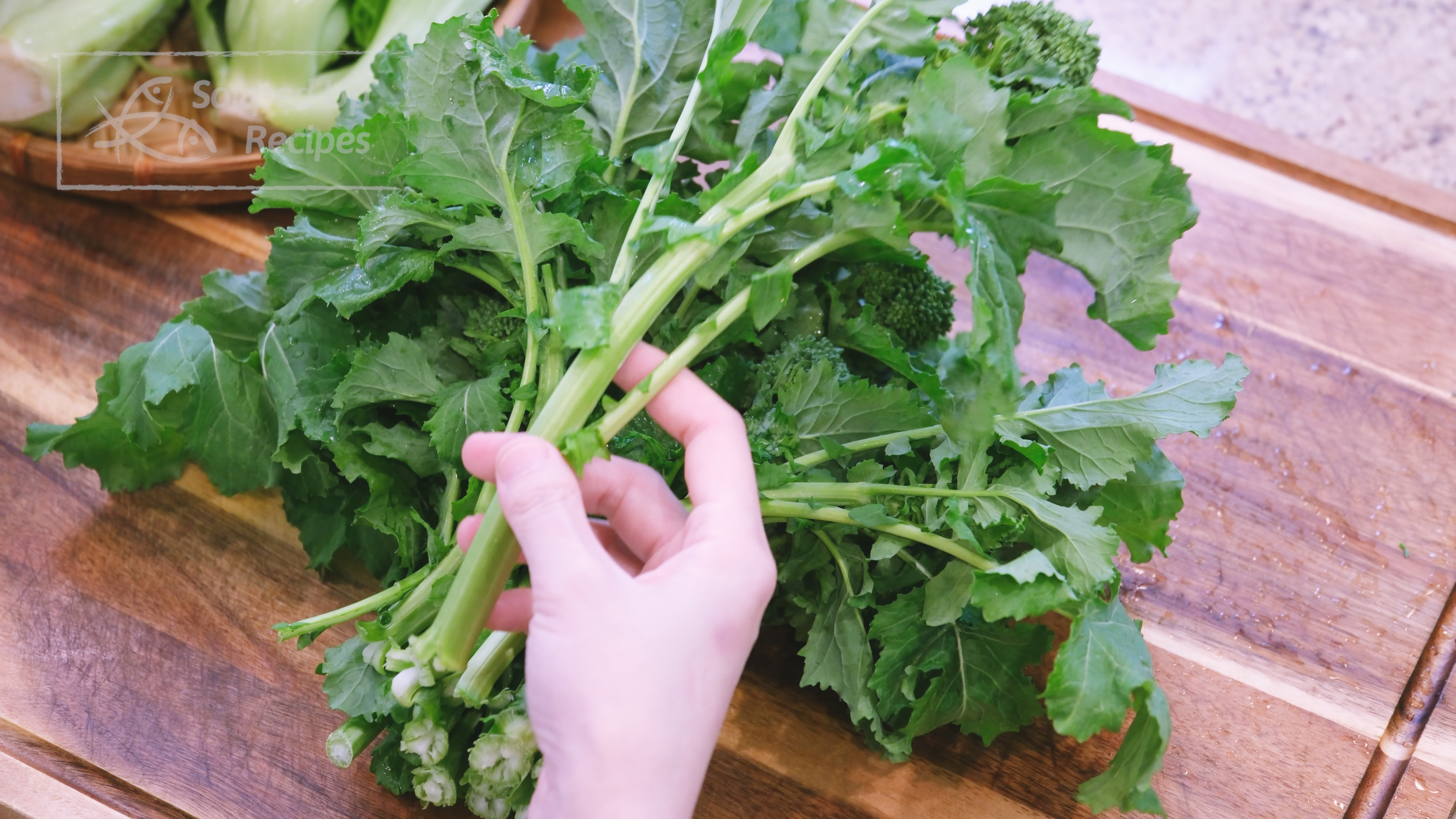
- Discard the end of the mustard green. Cut each of them into halves. If using rapini as a replacement, you do not need to cut them because they are so much smaller.
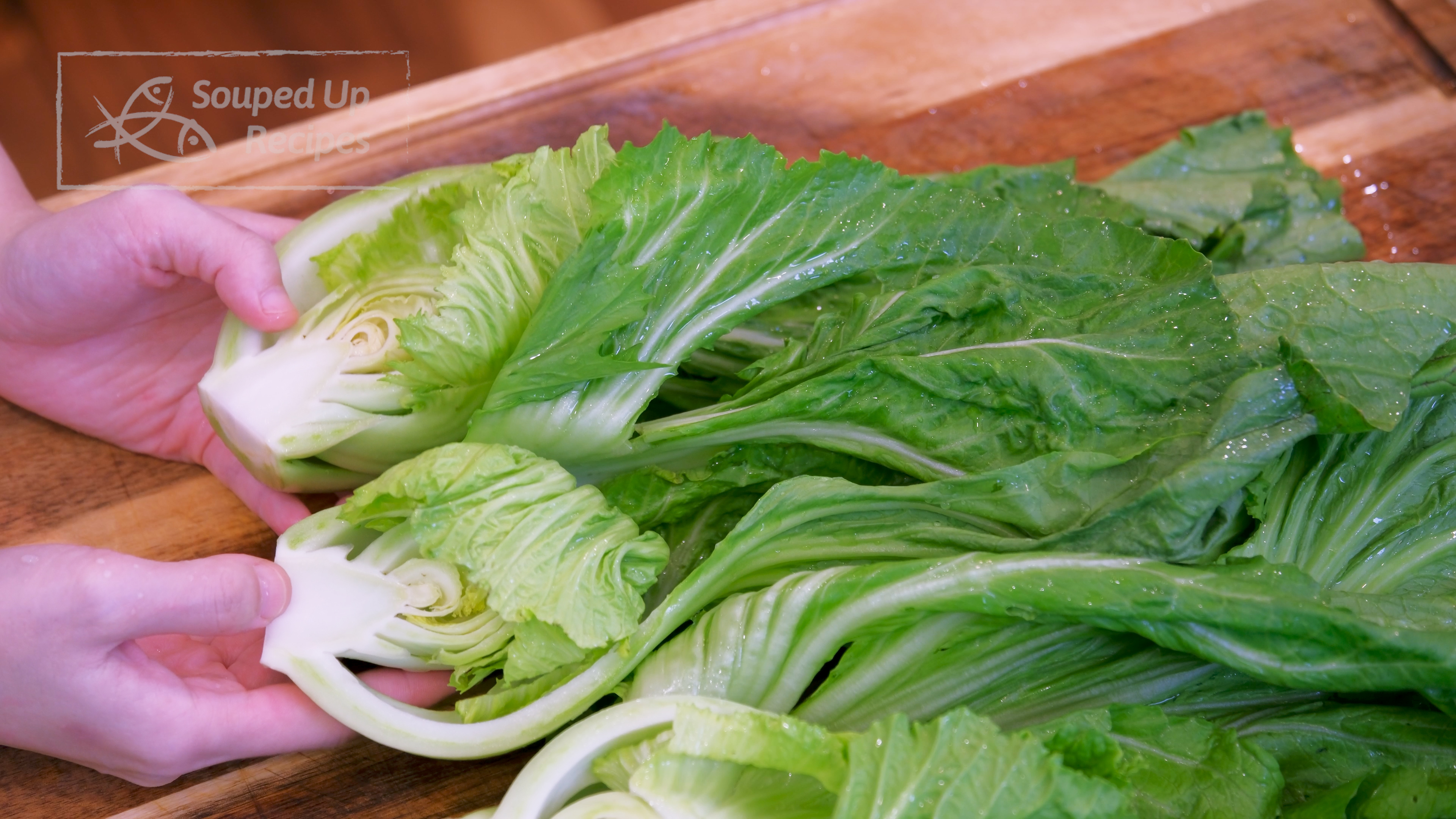
- Place the mustard green onto a rack. If the weather is good, put the rack outside and let it sun dry for 8 hours. If the weather is bad, you can put the vegetable under a ceiling fan at high speed for 10 hours or in a dehydrator at 95 F for 6 hours. For those of you who are using rapini as a replacement, please decrease the time by half because rapini is a much smaller vegetable.
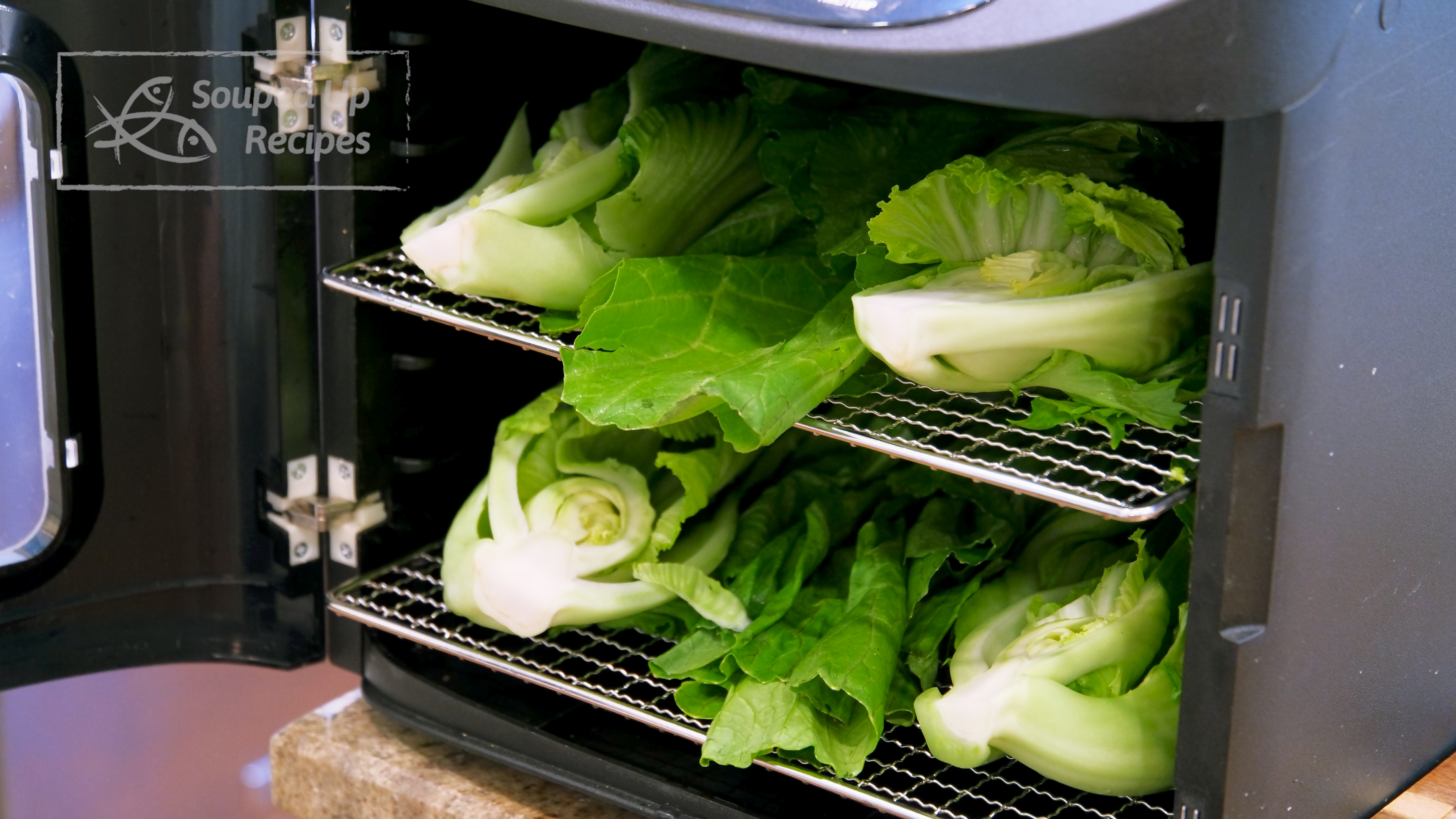
- Before the mustard green is done dehydrating, bring a pot of water to a boil and blanch the jars for 20 seconds. For your reference, The measurements I gave are enough to fill up two 32-oz mason jars. Make sure you blanch the lids and the glass weighs if you have them. No need to dry the jars because we will fill them with water anyway.
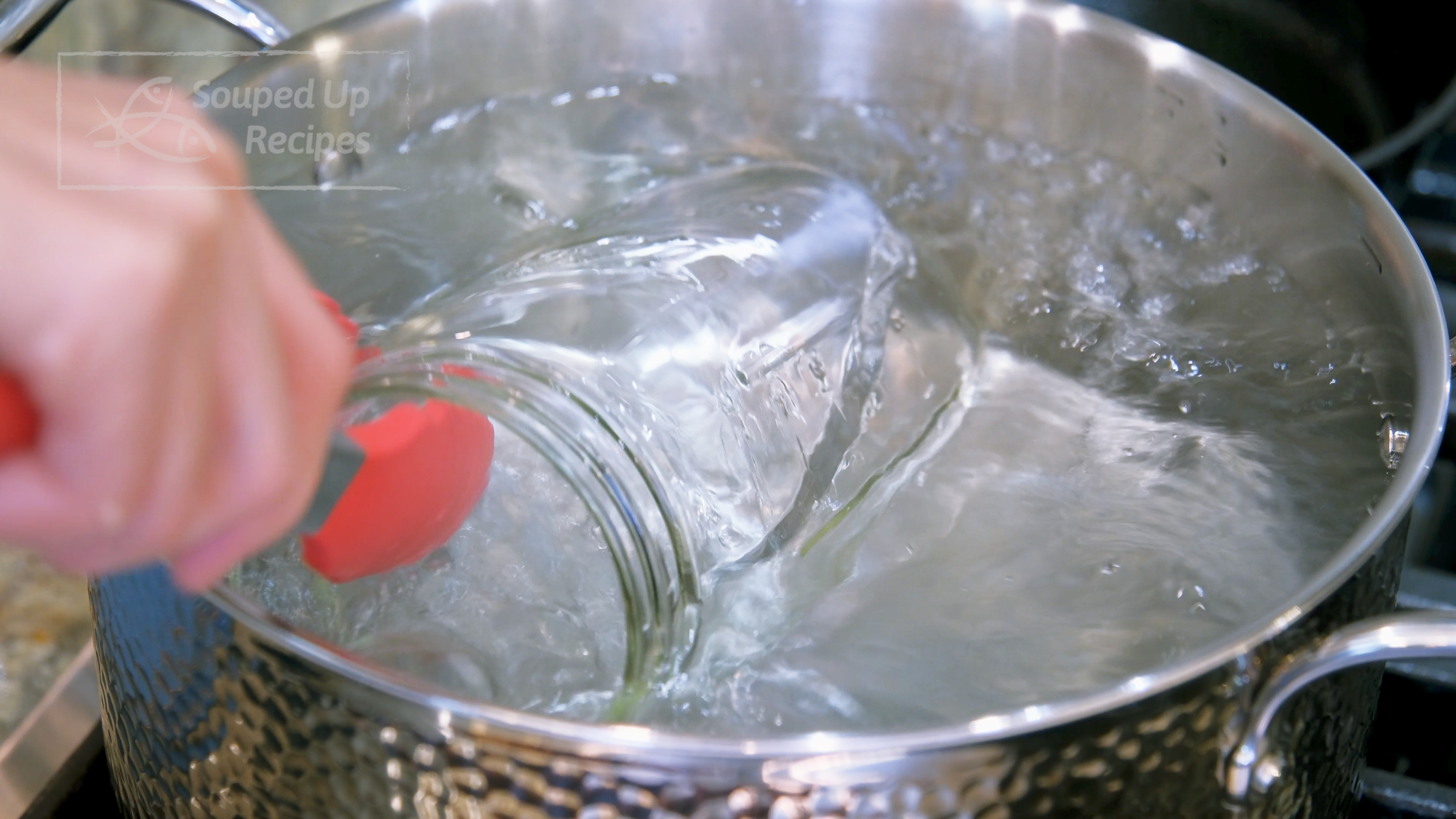
- When the mustard green is done drying, the leaves should be wilted, the stem should be slightly bendable, and you shouldn't see any obvious moisture. Weigh it with a scale. I use 2 lbs / 907g of fresh mustard green. After the dehydration, I have 28.2 oz / 800g left.
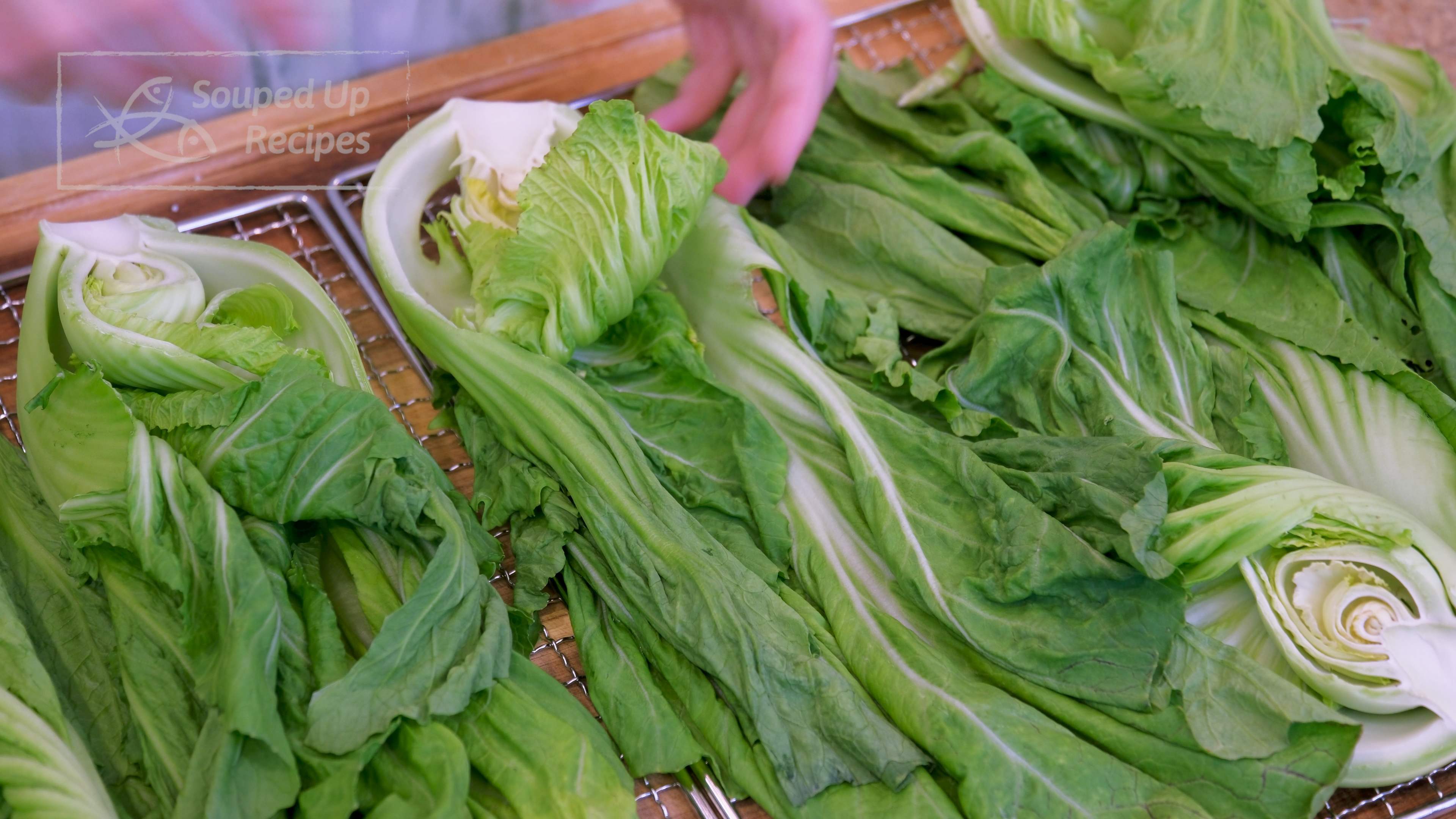
- Weigh and measure the salt, which should be 7% of the weigh of the vegetable. In my case, it is 56g / 2 oz.
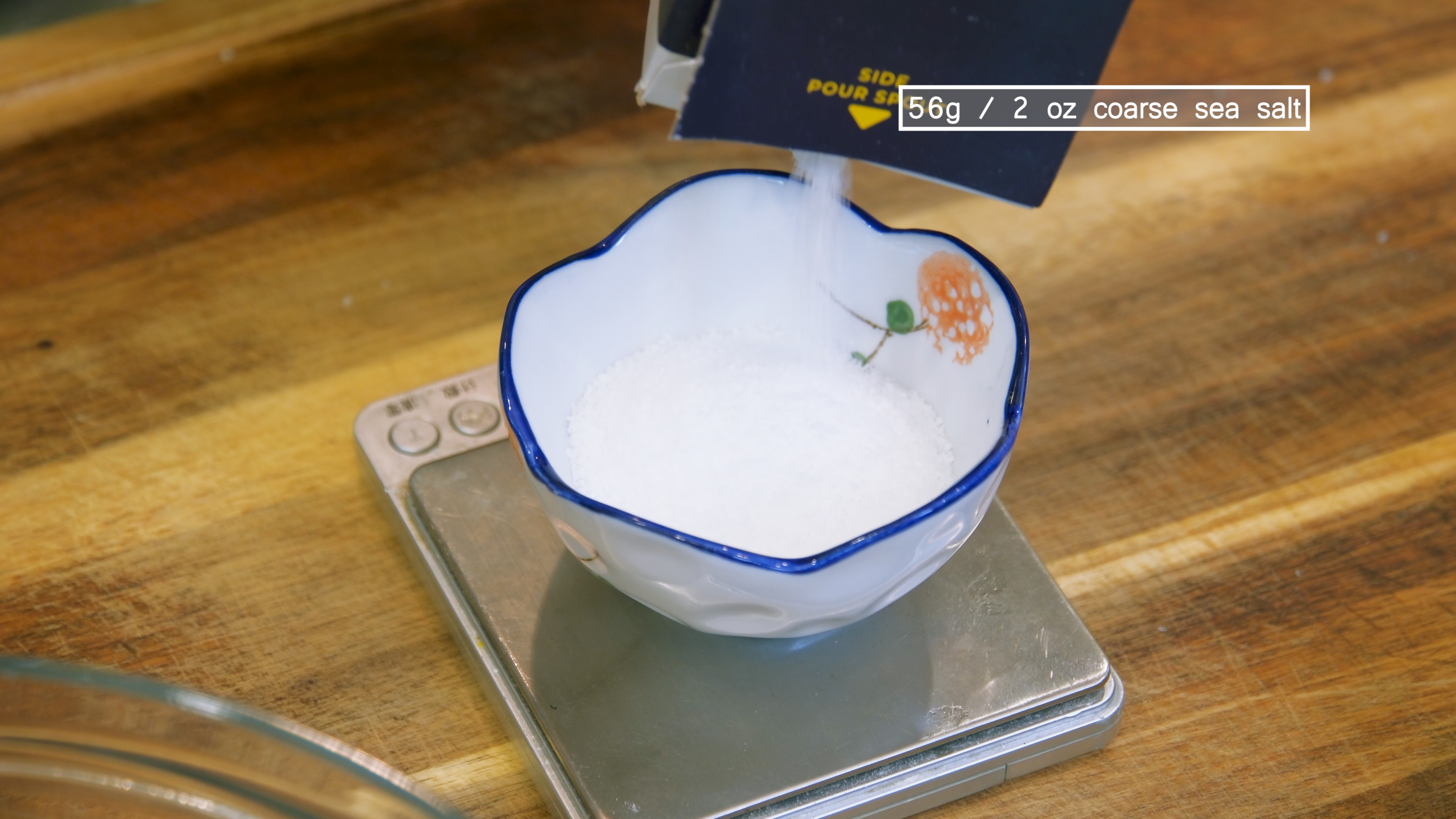
- Rub the mustard green with coarse sea salt for 10 minutes. Make sure you use a big container with deep walls so you can do lots of kneading and rubbing without spilling everywhere. Also, open up the leaves so you can sprinkle the salt in between.
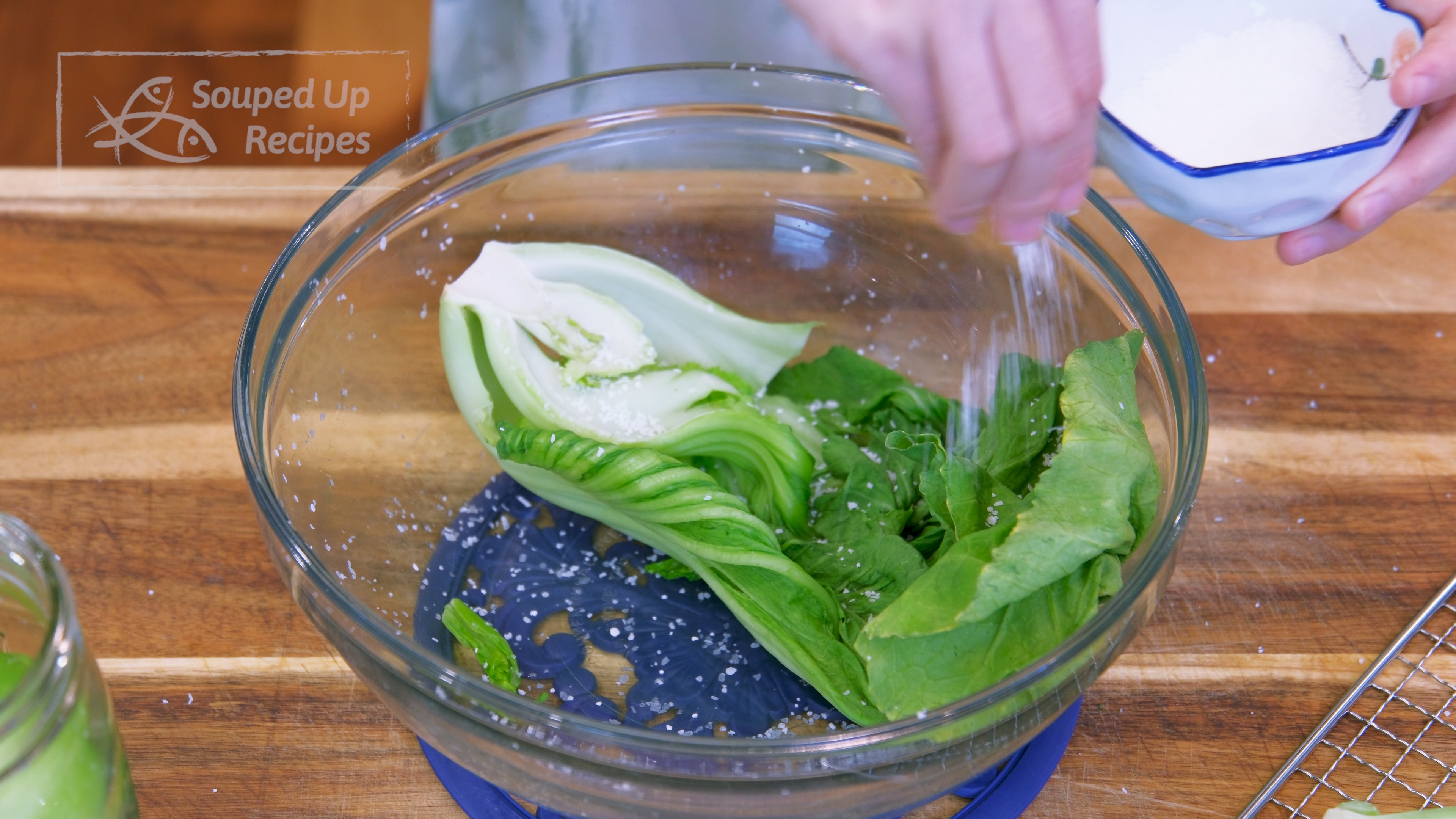
- When you see the surface of the vegetable become a bit moist, you can roll up the leaves and add them to the clean jars. It is better to put everything into one big jar, but I currently don't have a big jar for this. So I have to evenly split the mustard green and the salt. I have done this many times, so I really don't need to weigh them. I just go with my eyes. Once done, please scrape down the rest of the salt into the jars so you don't mess up the sodium ratio.
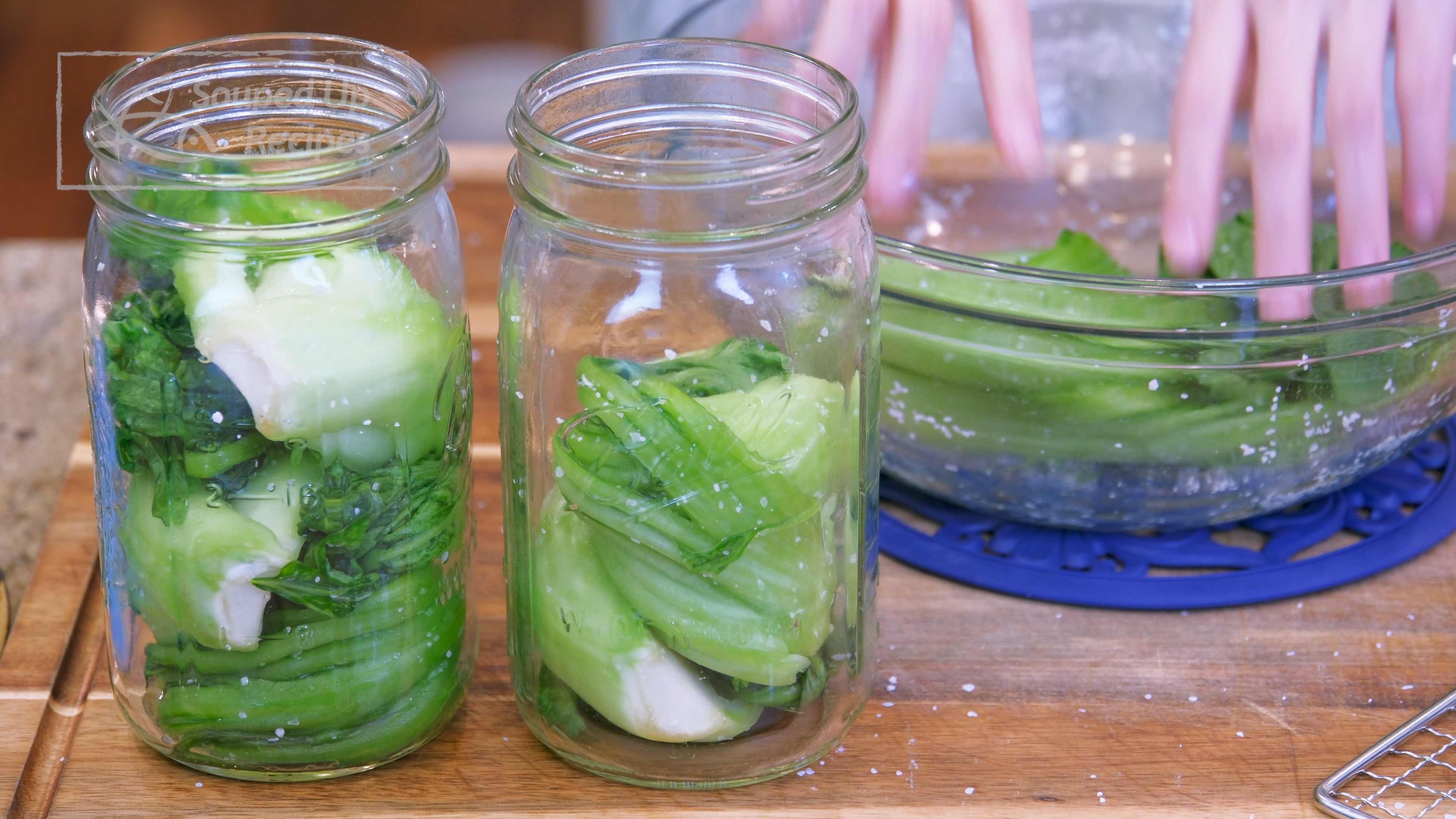
- Fill the jars with water (700-800g in total / 350g - 400g water in each jar). I am lazy, so I use distilled water, but you can also boil some tap water and let it cool completely before pouring it into the jars.
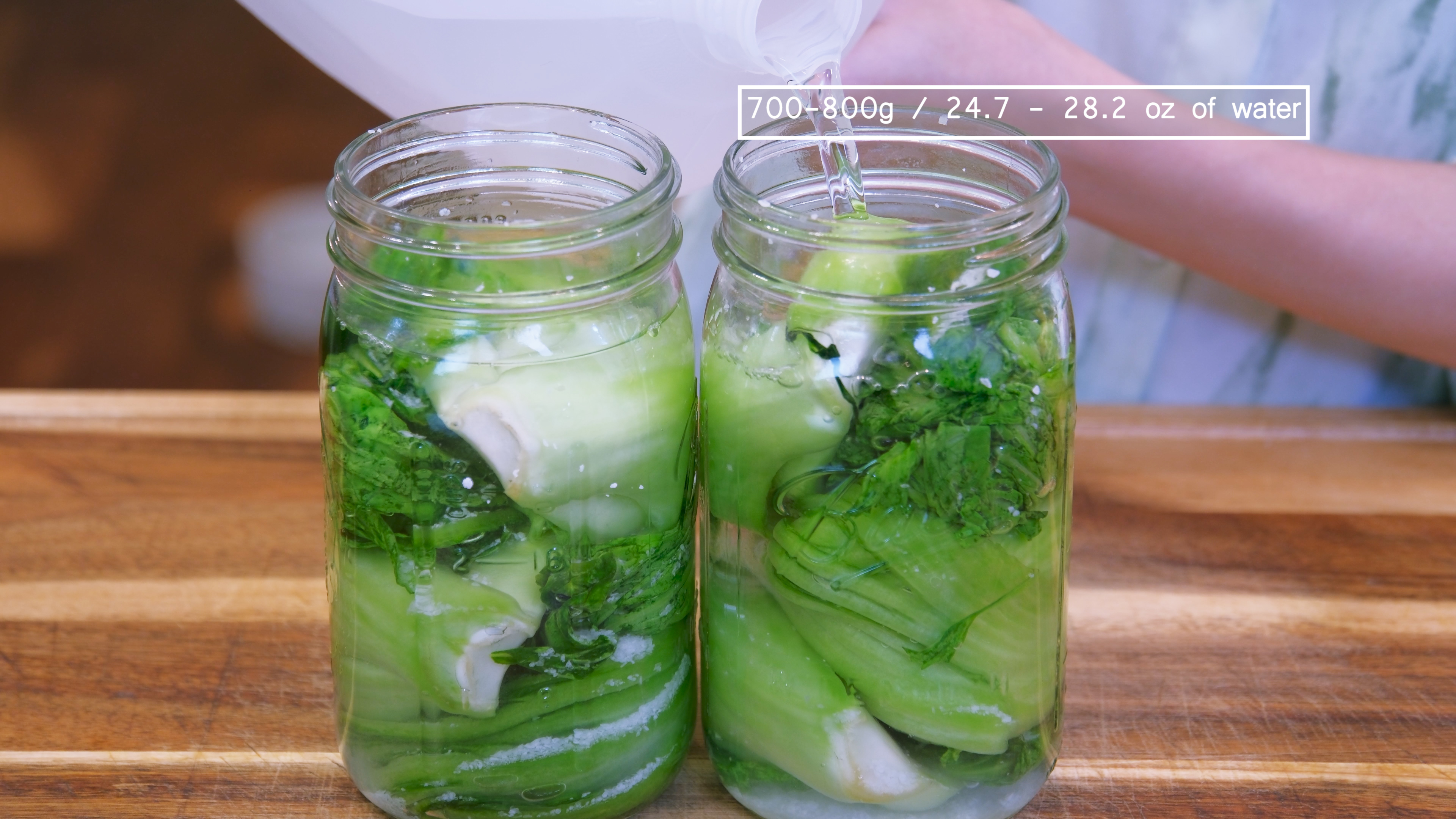
- Use glass weights to press the vegetables down below the liquid. Tighten the lid and let the mustard green ferment at room temperature for 15 days. During this time, you will see the color changing from green to brown. Recommend placing a tray under the jars because there will be some bubbles rising during the fermentation. Every 2-3 days, I like to lightly untwist the lid to release the air, then tighten it again. Otherwise, the pickling brine will overflow.
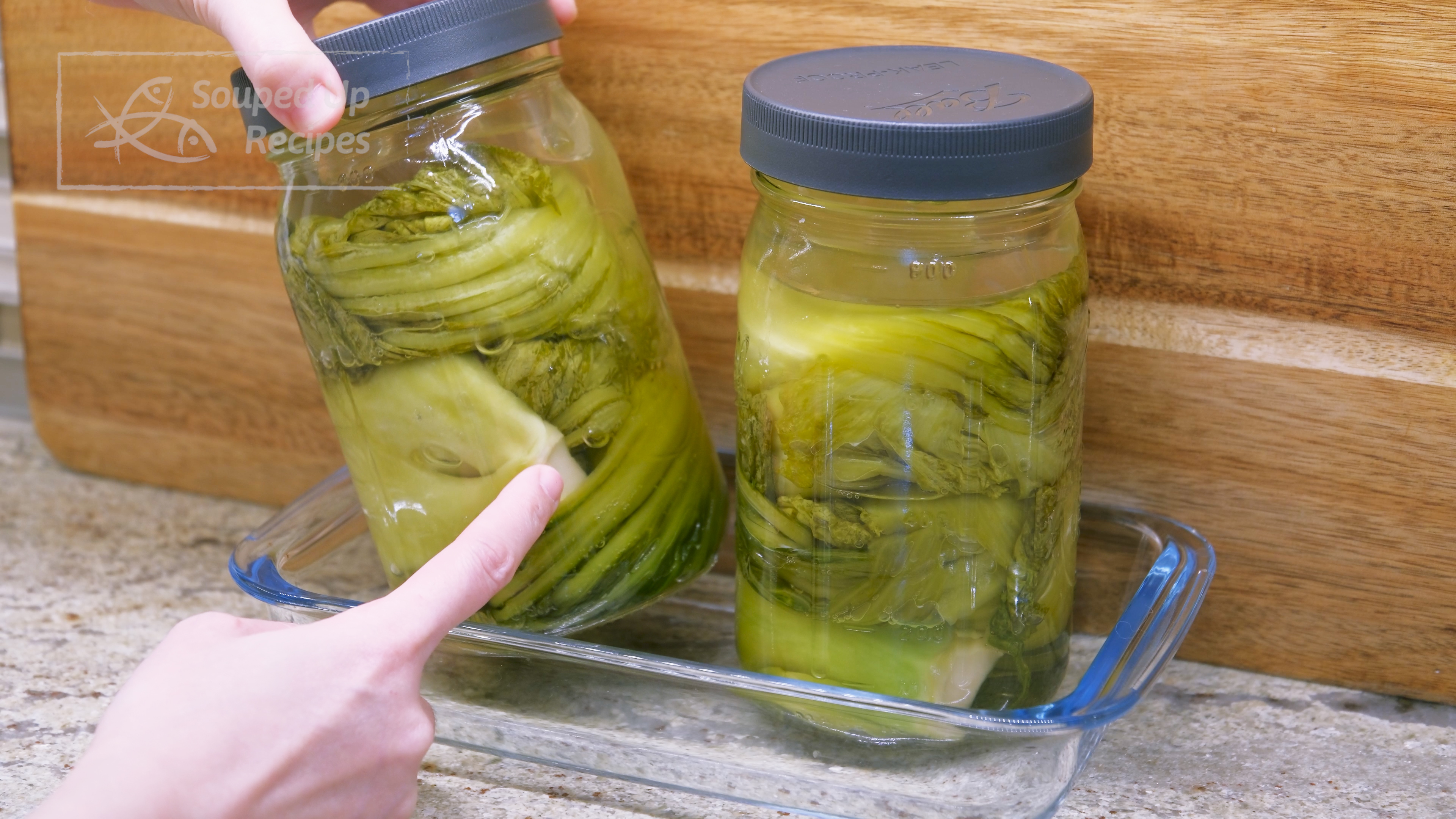
After 15 days, you can use pickled mustard green to cook these recipes: Easy Braised Beef with Pickled Mustard Greens, Yibing Flaming Noodles, Taiwanese Steamed Pork Buns (Gua Bao Recipe), Hot and Sour Soup Recipe (Sichuan Suan Cai Yu 酸菜鱼).
